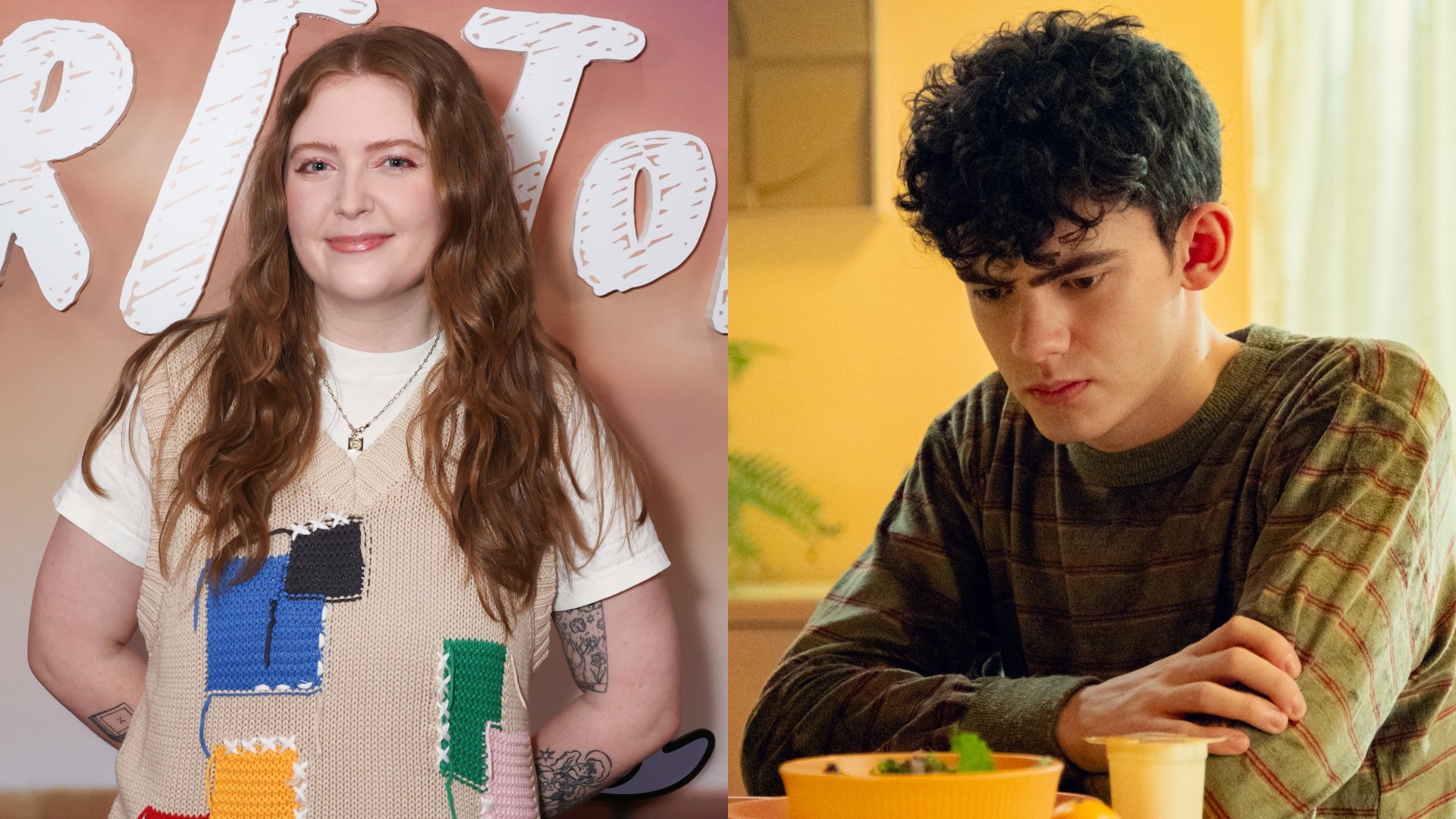Alice Oseman explains how Heartstopper approached Charlie’s eating disorder
"Things are going to be okay in the end — that’s sort of what Heartstopper is all about," Alice Oseman said
By Alim Kheraj

The third season of Alice Oseman‘s Heartstopper is the show’s most mature yet. Tackling everything from sex to moving on to university, our fave LGBTQ+ teens are officially growing up.
However, while these are all important topics for young queer people, there’s one plot line in the Netflix show’s latest outing that feels particularly salient: Charlie’s (Joe Locke) eating disorder.
Below are some light spoilers for Heartstopper season three.
While the show has previously hinted at Charlie’s disordered eating, this season it comes fully into focus. After finally discussing it with his boyfriend Nick (Kit Connor), and then later his parents, Charlie ends up seeking out support.
It mostly plays out in episode four, as we follow him through his diagnosis, treatment and recovery while staying at an in-patient facility, and, later, during visits to a therapist.
It marks a slightly darker tone for Heartstopper. Still, the show carefully handles the issue with its usual sensitivity, respect and kindness.
Now Alice Oseman has shared why she felt it was important to get Charlie’s story right.
“You can always get yourself out of those dark situations” – Alice Oseman
In an interview with Elle, the 29-year-old writer explained that she wanted to strike the right balance between things feeling realistic without straying too far into the depiction of disordered eating becoming gratuitous.
“There’s a line in between those that I was trying to find,” she said, adding: “It was just approaching that story thinking, what do I need to show? What should I not be showing? What should I be just telling the audience about instead and not letting them see?”
Osemen said that the show worked with Beat, a UK charity with the mission to end the pain and suffering caused by eating disorders.
“They gave us feedback about which parts of the story were good and which we might need to tweak a little bit because they might be harmful or they might misrepresent the experience in some way,” she said.
“Charlie is hopefully a bit of representation for the many young queer men” – Alice Oseman
Oseman said her decision to tackle disordered eating through Charlie’s story was because of how prevalent the issue was in young men and queer people.
“We don’t see as much of that on TV or in films,” she said. “Eating disorders are still seen as a primarily female mental illness, which is obviously not true at all. Charlie is hopefully a bit of representation for the many young queer men out there who do have eating disorders and are struggling with that every day.”
Still, while the show may be addressing serious themes, Oseman explained that it was crucial that, in the end, the core tenets of Heartstopper remained.
“No matter what dark things can get in your life, no matter what difficult situations you are dealing with, whatever that may be, there’s always going to be hope, and there’s always joy, and there’s always friendship to be found,” she said.
“You can always get yourself out of those dark situations. Things are going to be okay in the end — that’s sort of what Heartstopper is all about.”
Heartstopper season three is streaming on Netflix now.
